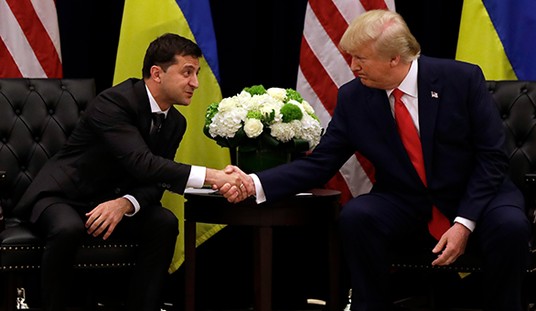Sen. Bob Corker, chairman of the Senate Foreign Relations Committee, opened a hearing last week with these candid, if not immortal, words: “I think the agreement is off to a really terrible start.”
The agreement in question is the Joint Comprehensive Plan of Action (JCPOA). It is to provide more than $100 billion in unfrozen assets to the Islamic Republic of Iran, the world’s leading sponsor of terrorism. In exchange, Tehran is supposed to halt a nuclear weapons program whose existence it has consistently denied.
More on that in a moment but first, this point: A deal so consequential ought to have been framed as a treaty. But treaties require congressional advice and consent. President Obama was uninterested in the former and unwilling even to try for the latter.
Initially, the deal Mr. Obama cut was termed an “executive agreement.” But in a Nov. 17 letter responding to a query from Republican Rep. Mike Pompeo of Kansas, the State Department revealed that the plan of action does not fall into that category either. In fact, it’s not even a “signed document.” It merely “reflects political commitments” — commitments that are not “legally binding.”
Why make enormous concessions in exchange for anything so fuzzy? Said the State Department to Mr. Pompeo: “The success of the JCPOA will depend not on whether it is legally binding or signed, but rather on the extensive verification measures we have put in place, as well as Iran’s understanding that we have the capacity to re-impose — and ramp up — our sanctions if Iran does not meet its commitments.”
In case you missed it: Both those claims have since been tested.
Last week, the International Atomic Energy Agency (IAEA) ended its investigation into the “possible military dimensions” of Iran’s nuclear programs — its attempt to verify whether Iranian officials have been telling the truth when they’ve claimed they’ve never had a secret program to develop nuclear weapons.
Recommended
No surprise: Iranian officials have been lying. Iran did indeed conduct nuclear-weapons research — a lot of it prior to 2003 (when the United States invaded Iraq and toppled Saddam Hussein) and some as late as 2009.
In fact, the IAEA found that “Iran’s clandestine nuclear activities represented a parallel nuclear program (from mining to uranium conversion and enrichment) carried out alongside its declared one,” according to Olli Heinonen, former IAEA deputy director general and head of its Department of Safeguards.
True, the inspectors found no evidence of weaponization work after 2009 but absence of evidence is not evidence of absence. Not finding much doesn’t mean much given the fact that Iranian officials have “refused to come clean,” as Mr. Heinonen phrased it. And Iran coming clean is what Secretary of State John Kerry vowed last April “will be part of a final agreement. It has to be.” Well, Mr. Kerry, it’s not.
I was surprised by how many journalists chose not to report this. On the BBC’s “Newshour” with Razia Iqbal, a correspondent from the BBC’s Persian Service said not a word about Iran’s now-proven nuclear deceptions. His sunny spin: The IAEA “will end investigations and look to the future — no more looking to the past.”
As to the future, this much is clear: The nuclear deal does not prevent Iran from developing nuclear weapons. In the words of my colleague, Mark Dubowitz, it “opens a patient path.” If Tehran abides by the Joint Comprehensive Plan of Action, it can have a massive nuclear weapons program 10 years or so after Mr. Obama leaves office.
And consider what Iran’s rulers are doing in the present: In October and November, they test-fired ballistic missiles capable of carrying nuclear warheads. Not only does that ignore Iran’s “political commitments,” it’s also a flagrant violation of U.N. Security Council resolutions.
The message, Iranian Defense Minister Hossein Dehqan explained, is “to tell the world that the Islamic Republic of Iran acts based on its national interests and no country or power can impose its will on us.”
Iran’s rulers have been sending that message in other ways as well, e.g., launching cyber-attacks against the U.S. State Department; continuing to support their mass-murdering Syrian client, Bashar Assad, with both Iranian forces and those of Hezbollah, their Lebanon-based foreign legion; attempting to turn Yemen into a satellite; and keeping American citizens — including a Washington Post correspondent and a former U.S. Marine — imprisoned on trumped-up charges.
Will Mr. Obama, in response, “re-impose — and ramp up — our sanctions,” as Mr. Pompeo was assured? No. At last week’s hearing, Stephen Mull, the administration’s coordinator for implementation of the Iran nuclear deal, revealed that sanctions may be lifted ahead of schedule, as early as next month.
Some members of Congress, from both parties, are distressed. Republican Sen. Kelly Ayotte of New Hampshire has filed legislation to prohibit sanctions relief unless the administration can certify that Iran has “verifiably ended all military dimensions of its nuclear program.” Republican Rep. Devin Nunes, chairman of the House Permanent Select Committee on Intelligence, has introduced the “IRGC Sanctions Act,” aimed at limiting the ability of the Iranian Revolutionary Guard Corps to fundraise and export terrorism. And a bill introduced by Republican Rep. Pete Roskam of Illinois would lower the threshold for the Treasury Department to designate IRGC-controlled entities.
I’ll be surprised if Mr. Obama does not oppose these measures — vetoing them if they pass or, more likely, arranging for filibusters to block votes in the Senate.
So why should members of Congress try? For one, because that’s their job. Second, such bills at least provide guideposts for whoever will occupy the White House next. Will the new president take the steps necessary to prevent the Islamic republic from acquiring the nuclear weapons it needs to further the jihad it has declared? I’m doubtful. But I’m always willing to be surprised.

























Join the conversation as a VIP Member